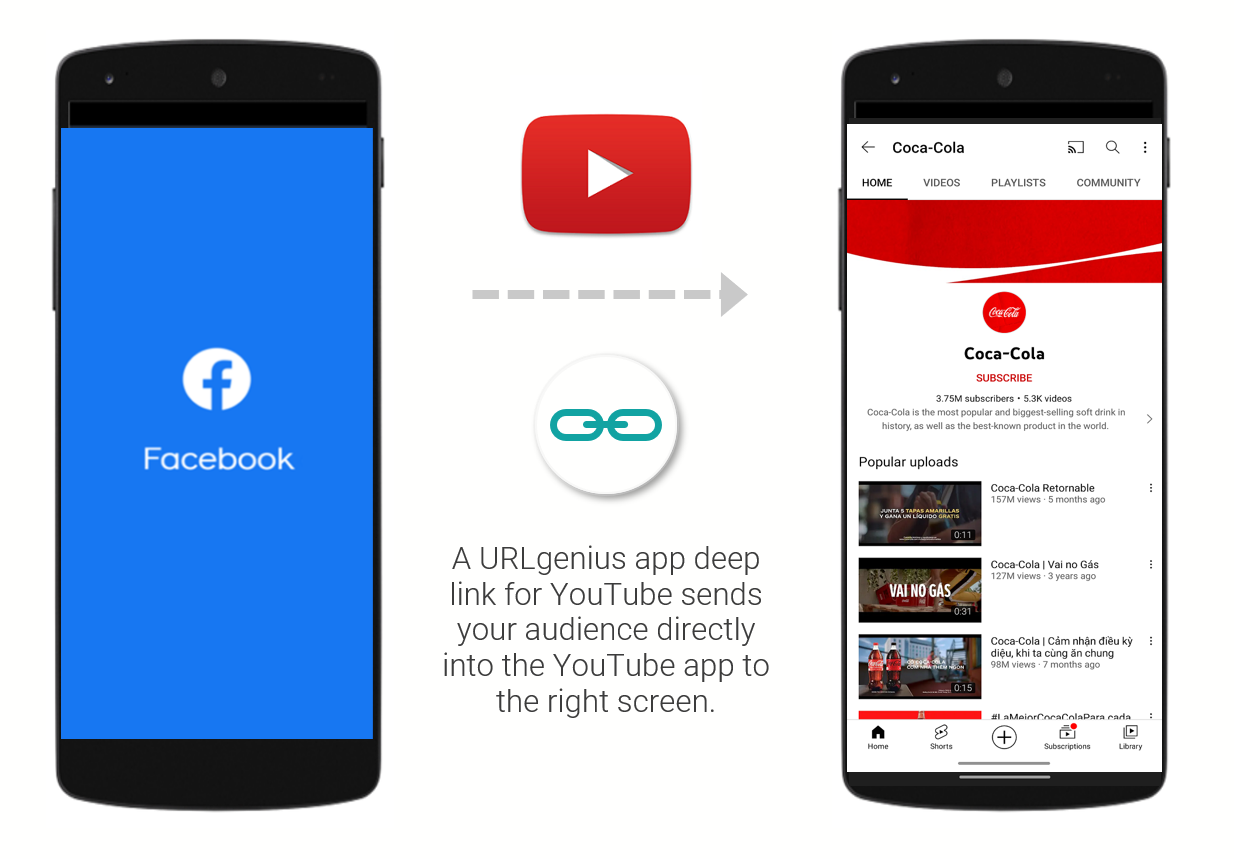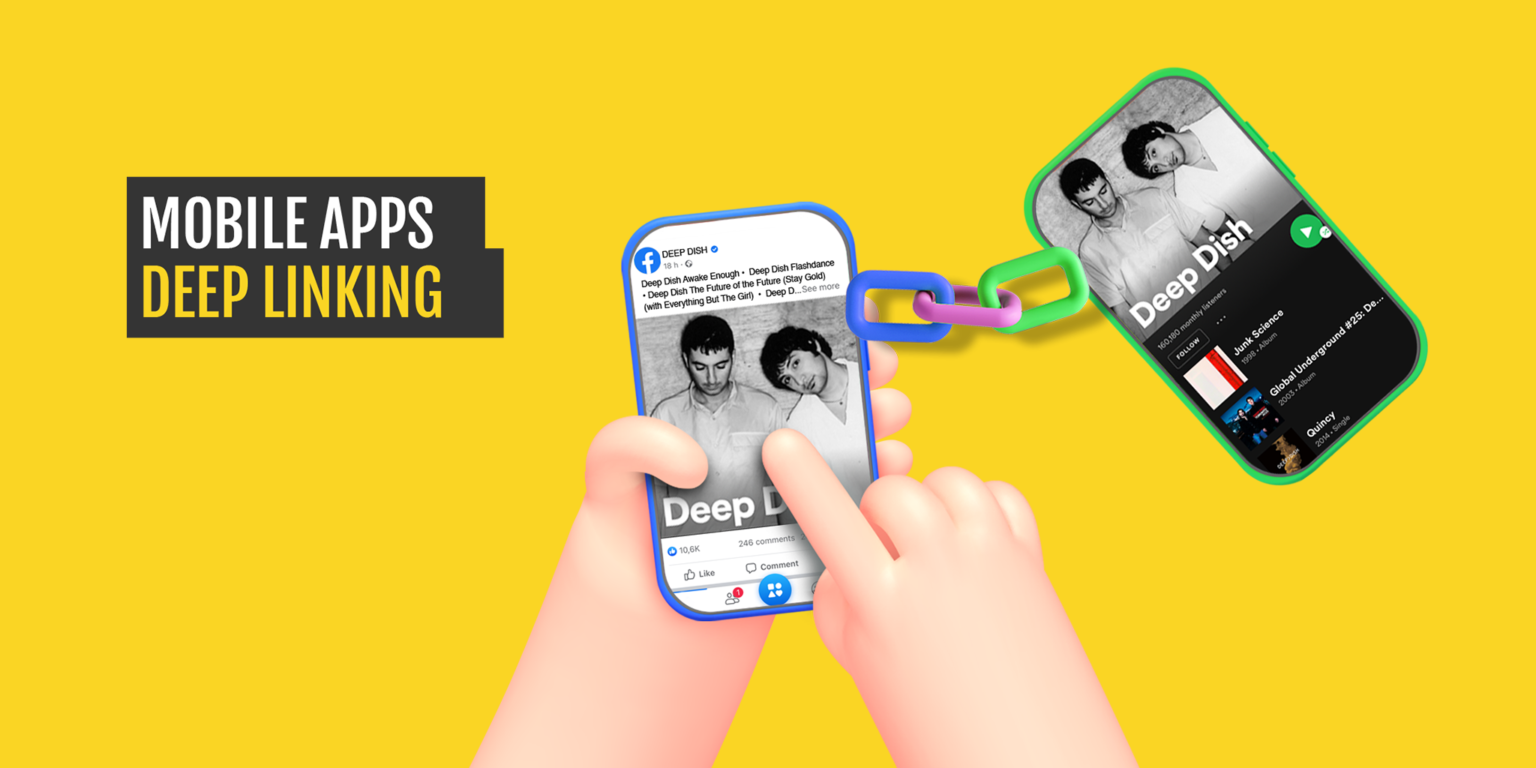Hey there, tech enthusiasts and app marketers! Ever wondered how to make your app more discoverable in today’s crowded digital landscape? Enter the world of deep linking SEO. This game-changing strategy can skyrocket your app's visibility and user engagement. But before we dive deep into the nitty-gritty, let’s break it down for you in a way that’s both informative and easy to digest.
Deep linking SEO is no longer just a buzzword; it’s a necessity. Imagine this: a user clicks on a link, and instead of being directed to your app’s homepage, they land directly on the specific page they were searching for. Sounds magical, right? Well, that’s the power of deep linking SEO, and we’re here to show you how to harness it.
In this article, we’ll explore everything you need to know about app deep linking SEO. From understanding its basics to implementing advanced strategies, we’ve got you covered. So, buckle up and let’s get started!
Read also:How Old Is Nba Youngboy In 2025 Unveiling The Rising Stars Age Life And Legacy
Here’s a quick glance at what we’ll cover:
- What is Deep Linking SEO?
- Why Deep Linking Matters for App Growth
- Biography of Deep Linking (Okay, not really a person, but stick with us!)
- Types of Deep Links
- How to Optimize Deep Links for SEO
- Best Practices for App Deep Linking
- Common Mistakes to Avoid
- Tools and Resources for Deep Linking
- Measuring Success with Analytics
- The Future of Deep Linking SEO
Let’s jump into the first section!
What is Deep Linking SEO?
Deep linking SEO refers to the process of optimizing app links so that users can directly access specific content within an app. Unlike traditional web links that point to a homepage, deep links take users straight to the desired page or feature within your app. This not only enhances user experience but also boosts engagement and retention.
Think about it this way: if someone searches for a product on Google and clicks a link, they don’t want to land on your app’s homepage and start navigating from scratch. They want to be taken directly to the product page. Deep linking SEO makes this possible.
Here’s a quick breakdown of how it works:
- Standard Deep Links: These links open a specific page within your app.
- Deferred Deep Links: These links direct users to the app store if they don’t have the app installed, then open the desired page once the app is installed.
- Contextual Deep Links: These links provide additional context, such as user preferences or past interactions, to personalize the user experience.
Why Deep Linking Matters for App Growth
Deep linking isn’t just about convenience; it’s a powerful tool for driving app growth. Here’s why:
Read also:Kelly Monaco Husband A Deep Dive Into Her Love Story And Life Beyond The Spotlight
First off, deep linking improves user acquisition. By directing users to specific content, you increase the chances of them finding what they’re looking for and staying engaged. This leads to higher conversion rates and better ROI.
Secondly, deep linking enhances user retention. When users can quickly access the content they need, they’re more likely to return to your app. It’s all about creating a seamless and frictionless experience.
Lastly, deep linking SEO boosts your app’s discoverability. By optimizing your app’s links for search engines, you increase the likelihood of your app appearing in relevant search results. This is crucial in today’s competitive app market.
Biography of Deep Linking
Alright, let’s get a little creative here. If deep linking were a person, here’s what their bio would look like:
| Name | Deep Linking |
|---|---|
| Birthplace | The World Wide Web |
| Age | Still young but growing rapidly |
| Profession | App Navigation Wizard |
| Skills | Directing users to specific app pages, improving user experience, boosting app growth |
Deep linking started as a simple concept but has evolved into a sophisticated tool that’s essential for any app marketer worth their salt.
Types of Deep Links
Not all deep links are created equal. Here’s a closer look at the different types:
Standard Deep Links
These are the most basic type of deep links. They direct users to a specific page within your app. For example, a link to a product page or a specific article.
Deferred Deep Links
Deferred deep links are a game-changer for user acquisition. If a user clicks a link but doesn’t have the app installed, they’ll be directed to the app store. Once the app is installed, the link will take them to the desired page.
Contextual Deep Links
Contextual deep links go a step further by providing additional information. This could include user preferences, past interactions, or even promotional offers. It’s all about creating a personalized experience for your users.
How to Optimize Deep Links for SEO
Optimizing deep links for SEO involves a few key steps:
First, make sure your deep links are indexed by search engines. This means they can be found and displayed in search results. Use tools like Google Search Console to monitor and manage your app’s indexing.
Second, use descriptive and keyword-rich URLs. This helps search engines understand the context of your links and improves their ranking in search results.
Third, implement app indexing. This allows search engines to crawl and index your app’s content, making it more discoverable.
Lastly, track and analyze your deep link performance. Use analytics tools to measure click-through rates, conversion rates, and user engagement. This data will help you refine your strategy and improve results.
Best Practices for App Deep Linking
Here are some best practices to keep in mind:
- Keep It Simple: Use clear and concise URLs that are easy to understand.
- Test Thoroughly: Test your deep links across different devices and platforms to ensure they work seamlessly.
- Personalize the Experience: Use contextual data to create a personalized experience for your users.
- Monitor Performance: Regularly track and analyze your deep link performance to identify areas for improvement.
Common Mistakes to Avoid
Even the best strategies can go awry if you don’t avoid common pitfalls. Here are a few to watch out for:
First, don’t neglect app indexing. Without proper indexing, your app’s content won’t be discoverable in search results.
Second, avoid using generic URLs. These don’t provide enough context for search engines and can hurt your SEO efforts.
Lastly, don’t forget to test your deep links. A broken link can lead to a frustrating user experience and negatively impact your app’s reputation.
Tools and Resources for Deep Linking
There are several tools and resources available to help you implement deep linking SEO:
Branch.io
Branch.io is a popular platform for deep linking. It offers a range of features, including deferred deep linking, contextual data, and analytics.
Adjust
Adjust is another great tool for deep linking. It provides detailed analytics and attribution data to help you optimize your campaigns.
Google Firebase
Google Firebase offers dynamic links that can be used for deep linking. It’s a powerful tool for app developers looking to enhance their app’s discoverability.
Measuring Success with Analytics
Measuring the success of your deep linking efforts is crucial. Here’s how:
First, track your click-through rates. This will give you an idea of how many users are clicking on your deep links.
Second, monitor your conversion rates. This will help you understand how effectively your deep links are driving user actions.
Lastly, analyze user engagement metrics. This includes time spent in the app, pages visited, and actions taken. All of this data will help you refine your strategy and improve results.
The Future of Deep Linking SEO
As technology continues to evolve, so does the world of deep linking SEO. Here’s what we can expect in the future:
First, we’ll see more advanced personalization. Contextual deep links will become even more sophisticated, using AI and machine learning to create hyper-personalized experiences.
Second, voice search will play a bigger role. As voice assistants become more popular, deep linking will need to adapt to this new form of search.
Lastly, we’ll see greater integration with emerging technologies like AR and VR. This will open up new possibilities for deep linking and app discovery.
Conclusion
Deep linking SEO is a powerful tool for app growth and discoverability. By optimizing your app’s links for search engines, you can improve user acquisition, retention, and engagement. Remember to follow best practices, avoid common mistakes, and leverage the right tools and resources.
So, what are you waiting for? Start implementing deep linking SEO today and watch your app soar to new heights. Don’t forget to leave a comment or share this article with your fellow app marketers. Together, we can revolutionize the world of app marketing!


